Iron Deficiency in Women: How to Improve Through Diet
- Gemma Campbell

- Feb 25, 2025
- 3 min read
Iron deficiency is one of the most common nutrient deficiencies worldwide, and women are particularly at risk due to menstruation, pregnancy, and other factors. While supplements are useful at improving iron levels there are also dietary approaches to consider too. In this post, we’ll explore how to address iron deficiency through dietary and lifestyle changes.

Why Is Iron Important?
Iron plays a crucial role in your body by helping produce haemoglobin, a protein in red blood cells that carries oxygen to your tissues. Without enough iron, your body can’t function optimally, leading to symptoms like fatigue, weakness, and difficulty concentrating.
Why Are Women at Greater Risk?
Menstruation: Regular blood loss during periods can deplete iron stores.
Pregnancy: Maternal increased blood volume and the baby’s growth raise iron requirements.
Dietary Choices: Vegetarian or vegan diets may lack easily absorbed sources of iron.
Chronic Conditions: Conditions like endometriosis or heavy menstrual bleeding can exacerbate iron loss.
Symptoms of Iron Deficiency
Fatigue and weakness
Pale skin
Shortness of breath
Brittle nails
Cold hands and feet
Headaches or dizziness
If you experience these symptoms, it’s important to consult with your GP.

Types of Iron: Heme vs. Non-Heme
Iron comes in two forms:
Heme Iron: Found in animal-based foods and more easily absorbed by the body.
Non-Heme Iron: Found in plant-based foods and less easily absorbed, but absorption can be enhanced with certain strategies.
Iron-Rich Foods to Include in Your Diet
Animal-Based Sources (Heme Iron):
Lean red meat (e.g beef or lamb)
Poultry (e.g chicken or turkey)
Fish (e.g salmon or tuna)
Organ meats (e.g liver)
Plant-Based Sources (Non-Heme Iron):
Legumes (e.g lentils, chickpeas, black beans)
Tofu and tempeh
Dark leafy greens (e.g spinach, kale or silverbeet)
Wholegrains (e.g quinoa, fortified cereals, brown rice)
Nuts and seeds (pumpkin seeds, cashews, almonds)
Tips for Enhancing Iron Absorption
Pair Iron with Vitamin C:
Vitamin C can significantly boost the absorption of non-heme iron. Combine iron-rich foods with vitamin C-rich options like citrus fruits, capsicum, kiwi fruit, or tomatoes.
Avoid Inhibitors During Meals:
Some foods and drinks can interfere with iron absorption. Limit tea, coffee, and calcium-rich foods (like dairy) around iron-rich meals.
Cook with Cast Iron:
Using cast iron cookware can increase the iron content of your meals, especially when cooking acidic foods like tomatoes.
Plan Balanced Meals:
Include a mix of heme and non-heme iron sources in your diet to maximize absorption.
When Supplements Are Necessary
While dietary changes may be sufficient enough for some, there are cases where supplements are necessary:
Severe Deficiency: Diagnosed anaemia or low ferritin levels may require iron supplementation.
Pregnancy: Pregnant women may need additional iron to meet increased demands.
Chronic Conditions: Conditions like Crohn’s disease or heavy menstrual bleeding may necessitate supplementation.
If you need a supplement, please consult with your doctor or dietitian to determine the right type and dosage. Taking too much iron can lead to side effects like constipation and nausea.
Lifestyle Factors That Support Iron Levels
Regular Checkups:
Monitor your iron levels through blood tests, especially if you’re at higher risk.
Exercise Moderation:
Intense exercise can deplete iron stores, so balance your activity levels with proper nutrition.
Manage Stress:
Chronic stress can affect nutrient absorption and overall health.
By incorporating iron-rich foods, optimising absorption, and addressing any underlying causes, you can effectively manage or prevent iron deficiency. If you’re concerned about your iron levels, consult your GP or dietitian.
